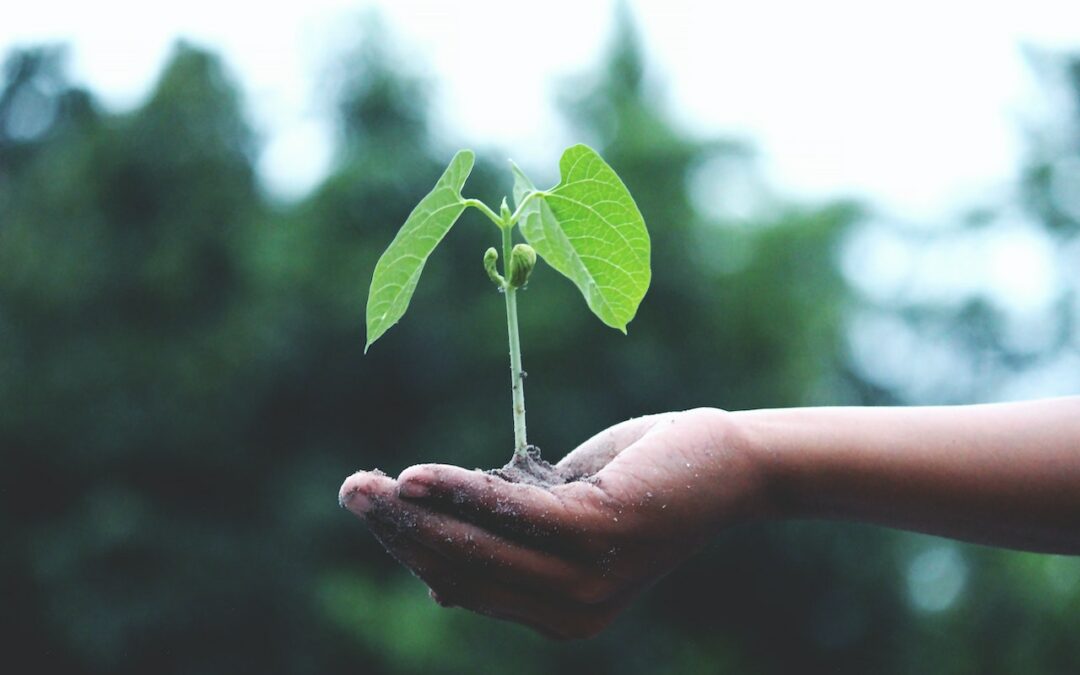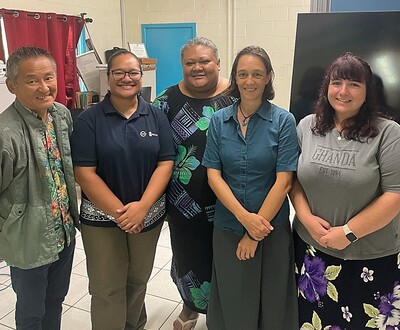
by Komoneed | Jun 10, 2024
Western Australia’s Cook government has doubled the size of grants for horticulture and viticulture growers who rely on the Gnangara groundwater system — Perth’s largest natural water source for drinking water and private supply.
The increased funding is intended to drive sustainability in the sector and protect this valuable water resource.
As part of the $1.19 million Gnangara Horticulture Water Use Efficiency Grants Program, up to $100,000 will be made available to growers, and grower co-contribution requirements will be reduced.
“This government has listened to growers who depend on Gnangara groundwater and we’ve adapted this important program to help commercial horticulture and viticulture growers adopt more efficient irrigation strategies for the future,” said Agriculture and Food Minister Jackie Jarvis.
The grants will help Gnangara growers to install water use efficiency infrastructure, including irrigation system design, soil and crop sensor technology, permanent protected cropping and soil amelioration.
Vouchers of up to $5000 are also available for professional advice to help develop efficient irrigation systems and to adopt new technology and sustainable cropping strategies.
“These grants will drive more sustainable use of groundwater for horticulture and viticulture from the Gnangara groundwater system, so the area can continue to provide fresh produce and employment opportunities close to Perth,” said Water Minister Simone McGurk.
“The program will assist the horticulture sector with the transition to reduced groundwater use before lower water entitlements come into effect from 2028 as part of the Gnangara Groundwater Allocation Plan.”
For more information and to apply for a Gnangara Horticultural Water Use Efficiency Grant or voucher, visit www.agric.wa.gov.au/horticulture-water-use-efficiency-grants. Applications close 30 June 2025.
Image credit: iStock.com/BeyondImages

by Komoneed | Jun 10, 2024
First report: electric supermini gets the seal of approval from Andy

by Komoneed | Jun 6, 2024
USAID Trains Indigenous Youth for Colombia’s Clean Energy Economy: An Interview with Rosalía Florez Palmar
jschoshinski
Tue, 06/04/2024 – 15:32
USAID is committed to supporting Colombia’s inclusive transition to a low-carbon and climate-resilient economy in which Indigenous Peoples and local communities, women, and youth can participate in, benefit from, and lead the country’s clean energy future.
Through the Scaling Up Renewable Energy (SURE) program, USAID partnered with the Government of Colombia and the national vocational training agency Servicio Nacional de Aprendizaje (SENA) to create a workforce training program tailored to meet the needs of Indigenous communities and renewable energy companies in northeast Colombia’s La Guajira region, which will be the site of new wind farms. The two-year solar photovoltaic (PV) installation and maintenance certification program consists of an academic portion and practical training through an internship at a solar system installation company. In June 2024, trainees will complete the program and enter the job market as certified technicians or become entrepreneurs.
SURE interviewed trainees on November 11, 2022, and recently caught up with Rosalía Florez Palmar as she prepares to graduate from the program. Rosalía, age 25, is from Clan Pushaina, an Indigenous Wayuu family, in the Guajira region’s Nuevo Amanecer community.
Image
Rosalia Florez Palmer at the USAID graduation ceremony on May 10, 2024.
Photo Credit: Walter Consuegra for Tetra Tech
This interview has been condensed and edited for clarity.
What can you tell us about your community?
The Indigenous Wayuu families have been characterized since our origins for being nomadic until we found a territory with all the conditions for our existence and survival. Hence, they settled in the peninsula of the Colombian and Venezuelan Guajira. This was the case of the family belonging to the Clan Pushaina, which in 1984 settled in a geographical space located in the center of the region. This family exodus came mostly from the high Guajira, in search of safeguarding their animals, such as sheep, goats, horses, and donkeys.
This ethnic group lived in the desert and lacked vegetation to obtain the grass necessary to feed their animals. The ancestral name of the territory is Apana pui because there is a stream in this community that bears this name. This territory was wide at that time. It was like paradise, there was a great diversity of fauna and flora of native species; there was a great diversity of timber trees, medicinal plants, and wild fruits. Today the sun and the wind can be one of our allies to revive the paradise that disappears every day.
How do you envision applying the skills and expertise you’ve acquired through the USAID training program to contribute to renewable energy projects in La Guajira and beyond?
I imagine myself being an empowered woman in renewable energies and being able to share all my knowledge so that it can be multiplied, applying projects for the benefit of our communities and focused on their sustainability. On the other hand, I also imagine having a company that is focused on energy solutions throughout Colombia and that provides more employment opportunities for all Indigenous women.
What was your experience with the USAID training program?
This was one of the most important experiences of my life because it was a great opportunity that came to my community. I was able to interact and share with 37 young people of my Wayuu culture from 12 communities, young people with different purposes but with the same goal.
What motivated me to enroll was that my community is a direct area of influence of the transmission lines of a wind farm, where I was totally unaware of this, but which was related to renewable energy.
How has this program prepared you for the challenges and opportunities in Colombia’s clean energy economy, especially in the context of La Guajira?
This program has prepared me completely because it orients us to the participation and intervention of projects focused on renewable energies, and their transition within our territories [and] being participants of these processes.
What were some of the most valuable skills and knowledge you gained during the academic portion of the program?
Within this program, I managed to develop different skills, taking into account the knowledge that has allowed me to advance and face my fears. Today I have critical thinking, communication, creativity, collaboration, in front of situations or problems. On the other hand, the most valuable knowledge that I acquired was all that was transmitted during the first phase which was focused on territorial relations and practices in renewable energy. I focus on this phase because it was the one that allowed me to have a broader perception of my territory and its energy wealth, which was totally unknown to me and was what motivated me even more to fall in love with renewable energy.
Could you tell us about your internship experience at the solar systems installation company? What were your responsibilities and achievements during this practical training?
When I started my internship, I had clear expectations and I wanted to continue learning. At times I was afraid because I had never been to a city as big as Barranquilla, taking with me my essence as a Wayuu woman, but today I thank God and the people from human resources from Esco Energy for giving me their support at all times.
On the other hand, when we were assigned the responsibilities, which was to make wiring boards: I can say this assignment was easy, because I related it to my work as a Wayuu woman. It was like weaving the Wayuu bags, everything had its sequence and logic to reach the culminating goal. I was very happy because I knew it was a great benefit for my Wayuu brothers and sisters.
Afterwards, we supported professionals of the electrical services company Aire by installing internal networks in different houses. I felt very happy to see the happiness and gratitude of all those people where we implemented this project.
The greatest achievement is to be able to have successfully completed and knowing that I gave the best of me. Today there are many people happy to have light in their homes for the first time and that these wiring and installations have been made by a group of Wayuu women.
As an Indigenous youth, how do you see yourself playing a role in addressing the climate crisis and promoting sustainable development in your community?
As a young Indigenous person, I see myself with the responsibility to guide all members of my community in the proper use of waste through lectures, training, and preparation from childhood to grow up with a sense of belonging to our environment. [Also, looking] for ways to implement mini projects for the use of waste generated by the community, and that is a benefit to the whole community.
Image
Photo Credit: Walter Consuegra for Tetra Tech
What are some of the key challenges you’ve encountered during your training, and how did you overcome them?
It was a challenge to make electrical wiring blueprints. I managed to overcome them with perseverance and help from the instructor and some colleagues.
In what ways do you think the partnership between USAID, the Government of Colombia, and SENA has helped to empower Indigenous communities and promote inclusivity in the energy transition?
In a positive way, because within our communities, we do not see these types of associations that are focused on the empowerment of Indigenous communities in the energy transition. A clear example are all those projects that have not been able to be developed in our department because the general perception is that they are only coming to fill their pockets. Today I can say that many authorities and leaders have that mentality because of lack of these opportunities, like lack of knowledge.
Looking ahead, what are your aspirations and goals as a certified technician or potential entrepreneur in the renewable energy sector?
My aspirations and goals are to continue preparing myself professionally in renewable energy. To be able to complete the program in order to formulate projects, to become an entrepreneur, to set up businesses and that my fellow students become my partners.
Lastly, how do you see your participation in this program contributing to the broader goals of Colombia’s clean energy transition, economic empowerment for Indigenous youth, and promoting the well-being of Wayuu communities?
The participation we have had in this energy promotion program is for our country. It offers endless opportunities. It contributes to the young world of today that fundamentally has the function of being the pillars to talk about energy transition in our communities and our country.
This also includes the activation of an economy that has been improving. Perhaps the economic production of the country, and of course also that of the Indigenous communities, through each of the students who today have the knowledge and competence in the areas where we can contribute what we have acquired in our training as technicians.
For more information on USAID’s clean energy work in Colombia, visit Colombia’s Clean Energy Future. To watch a video about the USAID
Teaser Text
SURE interviewed trainees on November 11, 2022, and recently caught up with Rosalía Florez Palmar as she prepares to graduate from the program.
Publish Date
Tue, 06/04/2024 – 12:00
Author(s)
Janice M. Laurente
Hero Image
Rosalia at graduation.jpg
Blog Type
Blog Post
Strategic Objective
Integration
Mitigation
Region
Latin America & Caribbean
Topic
Inclusive Development
Education
Energy
Clean or Renewable Energy
Gender and Social Inclusion
Green Jobs
Indigenous Peoples and Local Communities
Locally-Led Development
Partnership
Youth
Country
Colombia
Sectors
Energy
Show Download Link
Off

by Komoneed | Jun 6, 2024
In a world grappling with the escalating impacts of climate change, urgent action is essential to confront the environmental challenges threatening our planet’s future. Human activity has led to changes to Earth’s climate of a magnitude unprecedented over centuries and thousands of years. As the effects of climate change rapidly intensify, demand for specialists trained to address these pressing issues has never been greater.
At the University of Newcastle, the Master of Environmental Management and Sustainability aims to develop these specialists. The program offers a unique blend of environmental courses that focus on key principles of environmental management, sustainability, and climate change.
“The program has a very good reputation with alumni and current students, scoring highly on student satisfaction of teaching,” says program convenor Geoff MacFarlane.
“It is also accredited by the United Nations in teaching sustainable development goals in the curriculum.”
The core courses are certified by both the United Nations Institute for Training and Research (UNITAR), and Newcastle’s International Training Centre for Authorities and Leaders (CIFAL), the only CIFAL centre in Australia and Asia Pacific region. These courses ensure graduates have been taught best practice skills that can be immediately applied to their career.
“The career destinations of graduates are diverse, with many entering government roles at the local, state and federal level in sustainability and environmental management,” said Geoff.
“The Master of Environmental Management and Sustainability program gives students a good understanding of the complexities of the natural world, the vulnerability of socio-economic and natural systems to climate change as well as strategies to mitigate the activities that are driving our changing climate and strategies to adapt to the changing climate,” emphasised Michael Osborne, an academic who teaches into the program.
Students can tailor their learning with the option to study two of three specialty areas: business management, natural resource management, and spatial science. Suitable for people from a range of backgrounds and experience, the degree caters for both suitably qualified graduates from related fields and mid-career professionals wishing to gain postgraduate qualifications in the field. There are study pathways from 80 units to 160 units depending on your level of experience. Students can study at a time that suits with the program offered 100% online with multiple intakes per year.
Current student Danielle spoke about one of the courses offered within the program. “The course content was highly relevant, addressing critical aspects of environmental science and public policy. The focus on climate change — an urgent global challenge — captivated my interest and underscored the course’s significance,” Danielle emphasised.
“I gained a comprehensive understanding of international climate agreements and conventions. Learning about the processes behind launching, negotiating, and ratifying these agreements was eye-opening,” she added.
“The knowledge and skills I acquired through ENVS6545 [Impact Assessment and Climate Change Policy course] are invaluable to my work. I am already applying my learnings related to the IPCC, international treaties, and the achievement of sustainable development goals (SDGs),” she continued.
There is also a shorter Graduate Certificate in Environmental Management and Sustainability, a 40-unit 100% online program that provides core knowledge and is designed to provide credit into the Master’s program, allowing students to complete two degrees in less time.
Applications are now open. Visit newcastle.edu.au/enviro-sustainability for more information.
Image caption: Photo of student Danielle (right) and staff members from SPREP, the Ministry of Natural Resources and Environment in Samoa and the Japanese Technical Cooperation Project for Promotion of Regional Initiative on Solid Waste Management, Phase II in Pacific Island Countries (J-PRISM II). Taken on 30 April 2024.
Top image credit: iStock.com/Petmal

by Komoneed | Jun 6, 2024
New South Wales Premier, Chris Minns; Steven Worrall, MD of Microsoft ANZ; Rob Gell AM, Chief Sustainability Officer of Solar Recovery Corporation (also the President of Royal Society of Victoria and a member of the Order of Australia); Hanno Blankenstein, Co-founder and CEO of AI powered video and sensor platform Unleash live have joined a stellar line-up of global and local leaders to speak at Siemens’ Beyond 1% Summit in Sydney on 3rd and 4th July.
The newly announced speakers will join CSIRO Chief Scientist Bronwyn Fox; Stephan May, global CEO of Electrification and Automation, Siemens; and Florence Lindhaus, head of the Hydrogen Cluster at German-Australian Chamber of Industry and Commerce to discuss how digitalisation and new technology can accelerate sustainability outcomes for Australia, grow the economy and drive business success.
Also confirming their commitment to progressing the discussions around technology and sustainability are APS Industrial who have joined as a master distributor partner, Swinburne University of Technology, SAGE Group and Ampcontrol, who have joined as gold sponsors, and Australian Industry Group, Energy Efficiency Council, European Australian Business Council and the German-Australian Chamber of Industry and Commerce who have joined as industry partners of the Summit.
Themed Beyond 1%, the Summit will look at how Australia can embrace key technologies and innovate to do more for long-term sustainability than just address reducing the 1% of global emissions the country is responsible for.
Welcoming the opportunity to speak at the Summit, David Chuter, Executive Director, Industry Growth AusIndustry, Department of Industry Science and Resources said, “Why do design and manufacturing innovation matter? I can’t think of a more important answer than helping to address our net zero sustainability commitments — while at the same time growing Australian capability, business competitiveness and economic strength and complexity. Digitalisation is a key driver for innovation and therefore critical in addressing our ambitious sustainability targets. We have the opportunity to create impact both in Australia and also to help benefit the world.”
Agenda overview
The recently released Summit agenda outlines how these speakers and other industry leaders will discuss critical technology topics that impact sustainability including AI, hydrogen, renewable energy transition, grid resilience, energy efficiency in the built environment, industry funding, mandatory climate reporting and more.
Through a range of plenary discussions and breakout sessions, topics will include:
The Built Environment – Embracing energy efficiency to ease the burden on BIG decarbonisation targets
Energy efficiency plays an increasingly important role in nations achieving their decarbonisation commitments. What does this look like? Where are the greatest opportunities? And what roles do digitalisation and technology play as the key enablers?
Accelerating industrial innovation for global sustainability impact
With the right net zero lens, many innovations have broad sustainability benefits across entire sectors and supply chains. Reducing raw materials. Eliminating waste. Designing decarbonisation from the start. Product life cycle and its relation to circular economy. Digital twins through to AI and more. This session will look at the potential role of Australian industry on decarbonising the world and share real examples of what good looks like today.
Circular economy avoiding environmental disasters by turning waste streams into resource streams
This plenary session will look at real examples and innovations to turn pending environmental and embedded carbon disasters into high-value opportunities in sectors such as healthcare, building and construction and even the renewables industry itself.
Workshop – Practical Guide to Sustainability – Transforming your business for success
This workshop is designed to help individuals and organisations understand their sustainability objectives and will outline practical sustainability steps that businesses can take to reduce their operating costs and improve their bottom line. Doyen of practical sustainability and change, Jon Dee, will share the key tools, steps and secrets to making big changes happen.
There’s more to hydrogen than electrolysers
This session will explore opportunities for hydrogen applications in Australia and provide a summary update and progress report from the latest global hydrogen summits.
Artificial Intelligence (AI)
AI gives industry unparalleled opportunities in digitalisation, data driven decision-making and innovation. It can play a significant role in sustainability. But where do we stand on testing, transparency and secure future-planning with AI and what are practical applications that are inspiring and already changing the world?
What does cybersecurity have to do with sustainability?
This session will look at cybersecurity of critical infrastructure and the very real connection between cybersecurity, digitalisation and the impact on achieving decarbonisation targets.
Event details
Date: Wednesday 3rd and Thursday 4th July 2024
Location: Sheraton Grand Sydney Hyde Park
The two-day Summit also includes a gala event to recognise some of the prime Australian examples who already represent the ideals and opportunities of ‘Beyond 1%’.
For registration and more details go to: https://www.siemens.com/au/en/company/fairs-events/beyond-summit.html.




